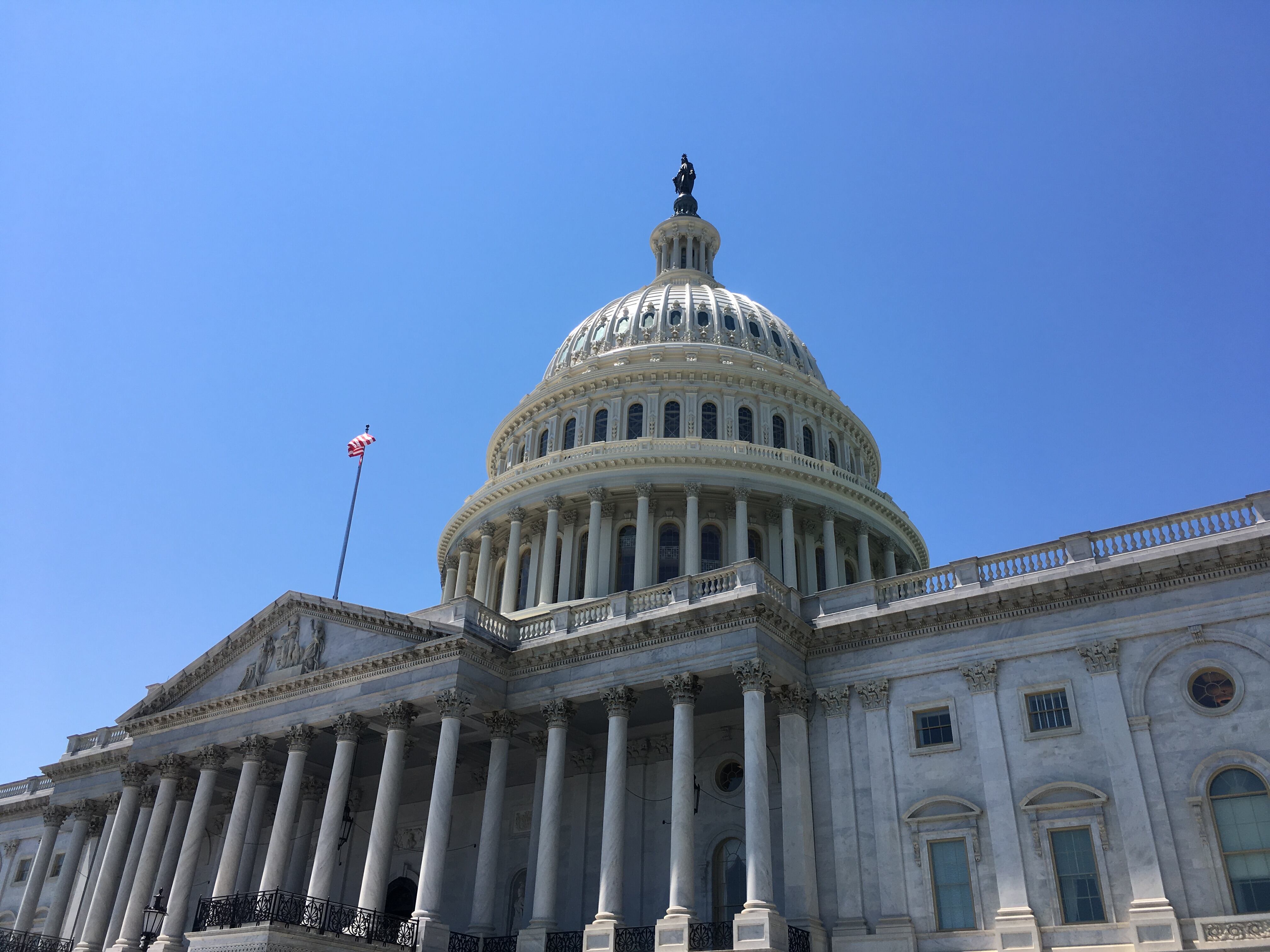WASHINGTON ― The U.S. Senate sent the president a $2.7 trillion budget plan with roughly $45 billion more in military funding over two years, despite complaints from fiscal conservatives the measure would raise the federal deficit.
The agreement — which passed 67-28 — has the support of President Donald Trump and bipartisan leaders from both chambers, but it sharply split Republicans in the final vote. Twenty-three Republicans voted “no,” and 30 voted “yes.”
Trump is expected to sign the measure within a day, which is designed to prevent a partial government shutdown this fall and stabilize appropriations plans for all aspects of federal agencies until after next year’s presidential election.
Majority Leader Mitch McConnell, R-Ky., and Senate Armed Services Committee Chairman Jim Inhofe, R-Okla., argued the increase in defense spending ― to $738 billion in 2020 and $740 billion in 2021, from $716 billion this year ― justified the compromise with Democrats.
After days of working to sway wavering Republicans, McConnell narrowly passed the measure. In the House last week, fiscal conservatives also found it a tough pill and the measure only drew support from only one-third of the House GOP membership.
RELATED

Only five Senate Democrats voted “no” on the deal Thursday.
Senate Minority Leader Chuck Schumer, D-N.Y., urged colleagues to vote for the deal, saying it would “strengthen our national security and provide our troops with the resources they need” but also make critical investments in "child care, cancer research, our veterans, and more.”
In the run up to the vote, Republican leaders acknowledged the deal as an imperfect, bipartisan compromise but sold it as a better alternative than both a debt limit crisis and the year-long continuing resolution the White House had floated. The deal also included an agreement to exclude “poison pill” riders, particularly those that restrict Trump’s ability to transfer money toward his border wall project.
“Given the exigencies of a divided government we knew any bipartisan agreement on funding levels would not appear perfect to either side,” McConnell said. “But the administration negotiated a strong deal.”
Citing the defense cap increase, McConnell also framed the deal as a departure from the years of “neglect and atrophy” for the military under the Obama administration, offering that, “Congress has worked hand-in-hand with the Trump Administration to begin writing a new chapter.”
(At one point in the week, Sen. Christopher Murphy, D-Conn., a member of the Senate Appropriations Committee, disputed that notion, arguing the Obama administration oversaw defense budget increases before congressional Republicans ushered in budget caps in 2011.)
Defense Secretary Mark Esper and Deputy Defense Secretary David Norquist, both of whom underwent confirmation on Capitol Hill in recent days, told lawmakers privately and publicly that the Defense Department was in need of stable funding after years of continuing resolutions and budget cap fights.
Inhofe argued that need for funding stability was reason enough to support that bill, even though it is less than the $750 billion that he and House Armed Services Committee ranking member Mac Thornberry, R-Texas, convinced Trump to seek for 2020.
“I will take this smaller deal to give our military what it needs: predictability,” Inhofe said in a Senate floor speech Tuesday.
Yet several Senate Armed Services Committee members voted “no”: Republican Sens. Deb Fischer, Thom Tillis, Josh Hawley, Rick Scott, Marsha Blackburn and Democratic Sen. Joe Manchin. (Democratic Sen. Elizabeth Warren, who is running for president, was absent for the vote.)
“Governance requires tough choices, and if everything is a priority, then nothing is a priority," Blackburn said in a statement. “Our priority should be ensuring our men and women in uniform have the resources they need to defend U.S. interests, our allies, and freedom. Holding those resources hostage to bloated, inefficient and wasteful federal spending is shameful and inappropriate.”
After passing the measure, the Senate was expected to recess for the summer. The House began its recess last week.
Joe Gould was the senior Pentagon reporter for Defense News, covering the intersection of national security policy, politics and the defense industry. He had previously served as Congress reporter.





